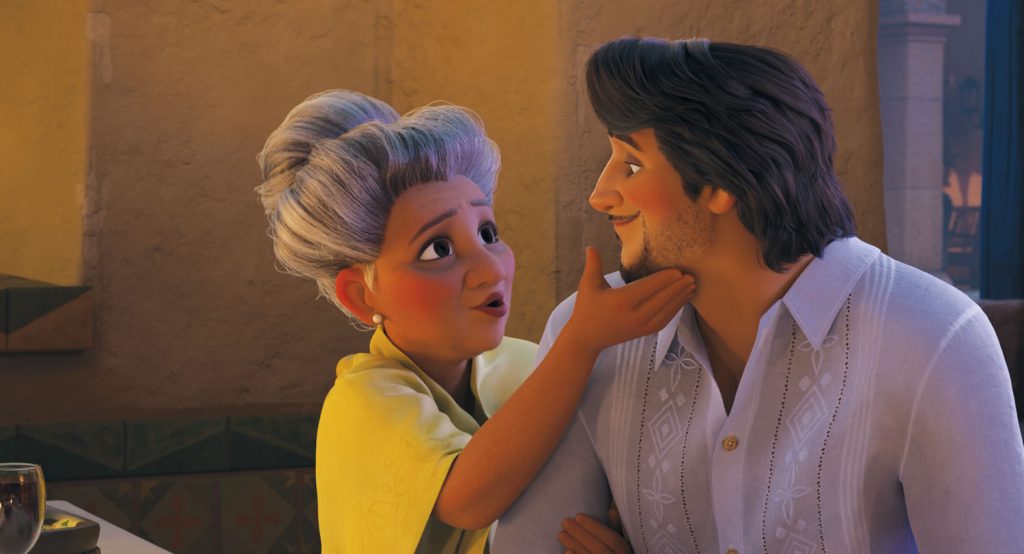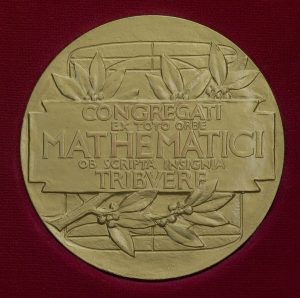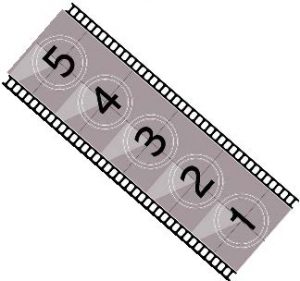 In films, they’re famously known as continuity errors. But these annoying little bloopers also creep into novels. For example, in J.K. Rowling’s Harry Potter and the Prisoner of Azkaban, a griffin first seen tied to a tree later finds itself tied to a fence.
In films, they’re famously known as continuity errors. But these annoying little bloopers also creep into novels. For example, in J.K. Rowling’s Harry Potter and the Prisoner of Azkaban, a griffin first seen tied to a tree later finds itself tied to a fence.
While writing his 900-page tome Sacred Games, novelist Vikram Chandra ’84 found the task of avoiding such errors maddening. Keeping accurate track of his huge cast of characters over the novel’s 60-year span was a constant struggle. “It just feels like doing manual bookkeeping with a goose quill and a double ledger,” he says.
Certain that someone must have designed software to help, he did some research and found to his surprise that no such software existed. So, after finishing his novel, Chandra—who is also a programmer and self-described “geek”—decided to create his own.
“I did a couple of attempts myself,” he says, “and then realized that putting everything into a database or spreadsheet didn’t really solve the problem, because there was no connection to the text. You still had to remember every time you made a change in the text to update your data, and the other way around. So then, my question was, ‘Why not attach knowledge to text? Why can’t we keep the text and information about the text in sync, as it were?’ And that turns out to be a much, much harder problem, for various technical reasons.”
Over the following decade, the seemingly insoluble problem continued to prey on his mind. Then one night, while he was lying in bed, the answer suddenly came to him.
And so, in 2016, he joined forces with an expert programmer, Borislav Iordanov, who took his raw insights and converted them into actual code. Together they founded a company named Granthika—a Sanskrit noun for “narrator.” Their software—also called Granthika—is now patent-pending and in beta testing, and they hope to release a version for fiction writers in early 2019. Future versions may be geared to the needs of other types of writers, from journalists to scientists.
Chandra explains: “The idea is that you’ll write, ‘Jack met Mary at a café,’ and the software, if you want it to, will prompt you, saying, ‘Is Jack a person? Is Mary a person? Is café a location? Does this entire sentence represent an event?’ When you say yes to those questions, you’re creating knowledge, facts that are attached to the text at a very intimate level.”
Since writers may not want to be interrupted while writing, they can also turn that function off and go back to it later, but the final result is the same—a collection of metadata, linked directly to the text itself, to help the writer maintain the illusion of reality.
Recently, as Sacred Games was being transformed into a TV series on Netflix, Chandra wished Granthika had been available when he was writing it. To trace all of the story’s complex, interwoven timelines, the series’ creators had to buy dozens of copies of the book, transfer the info to index cards and arrange them on a wall. With Granthika, he says, “what we’re able to do is have a menu choice that says, ‘Export Ontology,’ and when you hit that, it just takes all the knowledge of the work that you created and puts it in a package so that somebody else could then import it.”
But Chandra’s vision doesn’t end there. Granthika also has him thinking about how the interactive nature of this new software might lead, someday, to the creation of new forms of interactive or multimedia books.
“Since we’re making it so easy to attach metadata to text, our dream is that we’ll be able to make it possible for a writer to say, at the time of writing, ‘When the reader reaches this sentence and goes past it, dissolve into this moving image that will last for three seconds,’ and so, you see a bird walking across the beach, right? So in a sense, what you’re doing is programming a book as much as you’re writing it. And a reader is able to interact with the book—let’s say, adjust reading difficulties, or read the same novel from the point of view of different characters, all that good science-fiction-fantasy stuff we’ve been dreaming about for the last two or three decades.”
Previous (Funerals)
Next (Movies)
 At the moment when Encanto won the Oscar, Rose Portillo ’75—the voice of Señora Guzmán in the 2022 Academy Award winner for best animated feature—was on her way home after performing in a play.
At the moment when Encanto won the Oscar, Rose Portillo ’75—the voice of Señora Guzmán in the 2022 Academy Award winner for best animated feature—was on her way home after performing in a play.
 Some 26,000 students from more than 4,000 colleges auditioned for the chance to be among the 36 competitors in the Jeopardy! National College Championship, televised in February.
Some 26,000 students from more than 4,000 colleges auditioned for the chance to be among the 36 competitors in the Jeopardy! National College Championship, televised in February. Hidden figures no more. That’s the future that Professor of Mathematics Ami Radunskaya hopes to see soon in the world of mathematics: more women—particularly more women of color—in the field.
Hidden figures no more. That’s the future that Professor of Mathematics Ami Radunskaya hopes to see soon in the world of mathematics: more women—particularly more women of color—in the field. A solar-powered Coachella? That’s a future that alternative rocker Skylar Funk ’10 hopes to see one day. Although there isn’t a solar generator that is big enough to power the Coachella main stage yet—things are moving in that direction, says Funk.
A solar-powered Coachella? That’s a future that alternative rocker Skylar Funk ’10 hopes to see one day. Although there isn’t a solar generator that is big enough to power the Coachella main stage yet—things are moving in that direction, says Funk. Sales of the Japanese graphic novels and comic books known as manga have been falling inside Japan itself since the mid 1990s—a fact that Carl Horn ’91, manga editor for Dark Horse Comics, attributes to the long decline in the nation’s population—especially at the young end of the spectrum. “Even though Japan has the deserved reputation as a country where adults read comics, the top-selling titles are your Dragon Balls, your Narutos, your One Pieces, your Attack on Titans,” Horn says. “In other words, manga that were made for younger readers.”
Sales of the Japanese graphic novels and comic books known as manga have been falling inside Japan itself since the mid 1990s—a fact that Carl Horn ’91, manga editor for Dark Horse Comics, attributes to the long decline in the nation’s population—especially at the young end of the spectrum. “Even though Japan has the deserved reputation as a country where adults read comics, the top-selling titles are your Dragon Balls, your Narutos, your One Pieces, your Attack on Titans,” Horn says. “In other words, manga that were made for younger readers.” She’s smart. She’s funny. She’s a 20-something-year-old Saudi woman growing up on the Moon. That’s Jazz Bashara, the protagonist of Andy Weir’s newest sci-fi book, Artemis, and a soon-to-be-made feature film by producer Aditya Sood ’97.
She’s smart. She’s funny. She’s a 20-something-year-old Saudi woman growing up on the Moon. That’s Jazz Bashara, the protagonist of Andy Weir’s newest sci-fi book, Artemis, and a soon-to-be-made feature film by producer Aditya Sood ’97. In films, they’re famously known as continuity errors. But these annoying little bloopers also creep into novels. For example, in J.K. Rowling’s Harry Potter and the Prisoner of Azkaban, a griffin first seen tied to a tree later finds itself tied to a fence.
In films, they’re famously known as continuity errors. But these annoying little bloopers also creep into novels. For example, in J.K. Rowling’s Harry Potter and the Prisoner of Azkaban, a griffin first seen tied to a tree later finds itself tied to a fence. From Pokémon to the Marie Kondo decluttering craze, Japanese culture quickly crosses the Pacific. Costly funerals for furry friends could be next.
From Pokémon to the Marie Kondo decluttering craze, Japanese culture quickly crosses the Pacific. Costly funerals for furry friends could be next. Move over Bear Grylls. Make way Ron Swanson. Take a back seat Naked and Afraid.
Move over Bear Grylls. Make way Ron Swanson. Take a back seat Naked and Afraid.